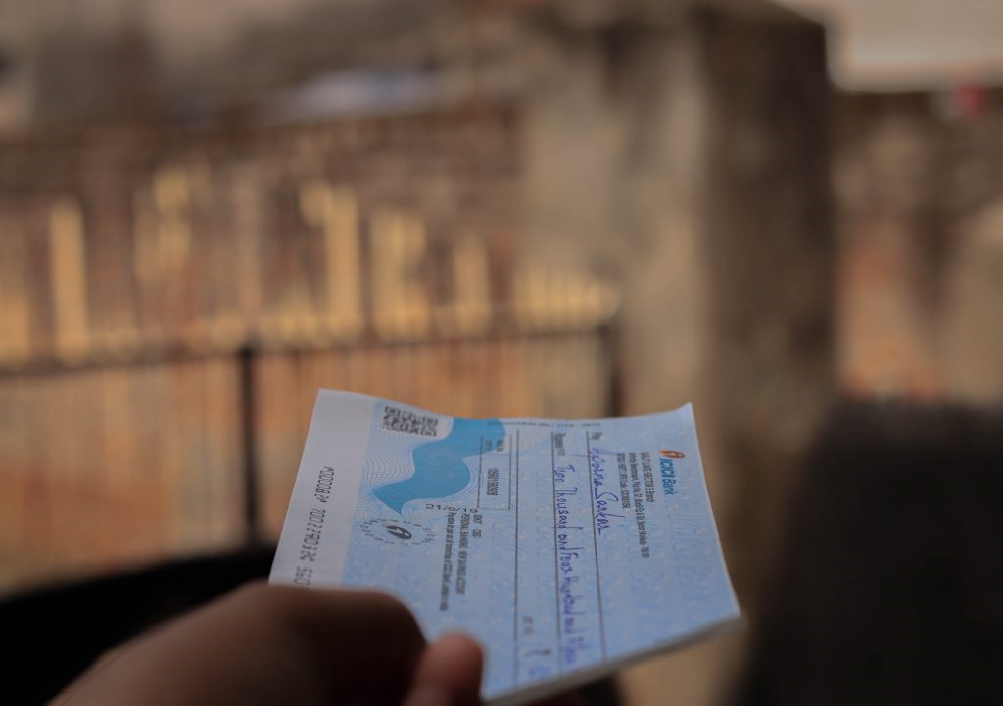Cheque bounce: No criminal proceedings against corporate debtor under moratorium

By LE Desk
New Delhi, March 2: The Supreme Court on Monday held that criminal proceedings cannot be initiated against a corporate debtor under the cheque bounce law if the NCLT has already passed an order of moratorium under the Insolvency and Bankruptcy Code. However, it said that such proceedings can continue against erstwhile directors/persons in charge of and responsible for the conduct of the business of the corporate debtor.
Disagreeing with the contrary view taken by the Bombay and the Calcutta High Courts, a Bench led by Justice R F Nariman in a batch of cases led by P Mohanraj v. M/S Shah Brothers Ispat Pvt Ltd said that moratorium under Section 14 of IBC also includes criminal proceedings for cheque bounce cases under Section 138 of the Negotiable Instruments Act, thus parallel proceedings against a corporate debtor cannot be allowed, the Financial Express reported.
“The legal impediment contained in Section 14 of the IBC would make it impossible for such proceeding to continue or be instituted against the corporate debtor. Thus, for the period of moratorium, since no Section 138/141 proceeding can continue or be initiated against the corporate debtor because of a statutory bar, such proceedings can be initiated or continued against the persons (directors/persons in management or control of the corporate debtor) mentioned in Section 141(1) and (2) of the Negotiable Instruments Act,” Justice Nariman said.
It said the object of a moratorium provision such as Section 14 is to see that there is no depletion of a corporate debtor’s assets during the insolvency resolution process so that it can be kept running as a going concern during this time, thus maximising value for all stakeholders. “The idea is that it facilitates the continued operation of the business of the corporate debtor to allow it breathing space to organise its affairs so that a new management may ultimately take over and bring the corporate debtor out of financial sickness, thus benefitting all stakeholders, which would include workmen of the corporate debtor,” according to the apex court.
Various appeals where filed seeking the clarity on whether the NCLT’s moratorium during corporate insolvency resolution process will bar parallel proceedings under Section 138 of the NI Act. In the lead case, Shah Brothers Ispat Private Ltd (SBIPL), the supplier of steel products, had filed a criminal complaint under Section 138 before a trial court against directors of Diamond Engineering Chennai Ltd (corporate debtor) after 51 cheques issued by debt-ridden firm were dishonoured for “insufficient funds”.
The NCLT, Chennai, had also in June 2017 initiated insolvency process against the firm on another plea by SBIPL. Later in September 2019, the NCLT approved the resolution plan submitted by the promoters as a result of which, the moratorium order of June 2017 ceased to have effect.
While the tribunal accepted the directors plea that no further complaints can be filed during the period of moratorium, the NCLAT ruled that Section 138 is a penal provision, which empowers the trial court to pass order of imprisonment or fine, which cannot be held to be proceeding or any judgment or decree of money claim, thus parallel criminal proceedings under the Negotiable Instruments Act can continue even as the resolution process is on.
While the directors of Diamond Engineering moved the Supreme Court, similar other petitions were clubbed together.
Sign up for our weekly newsletter to stay up to date on our product, events featured blog, special offer and all of the exciting things that take place here at Legitquest.




Add a Comment